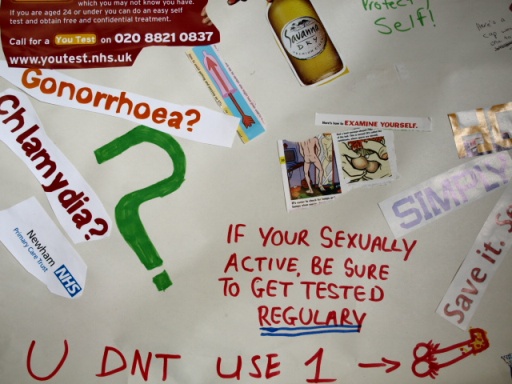STI testing clinic closure unacceptable for Grand Forks
As of today, Friday Dec. 30, the Grand Forks public health unit will no longer be testing new patients for sexually transmitted infections (STI) or HIV leaving a serious service gap for youth and marginalized individuals. The announcement came on Nov. 29 from Interior Health Authority (IHA) and will affect five STI clinics based in public health centres in Kamloops, Kelowna, Penticton, Cranbrook and Grand Forks. According to IHA, the decision to end the STI clinics is based on an “extensive program review” which indicated that 90 per cent of STI testing is being done by service providers other than the STI clinics and one per cent of HIV testing is being done by Interior Health nurses. While the testing will still be provided by other services like family physicians and drop-in clinics, some Grand Forks residents believe this will not serve the community as effectively as having it done through the public health unit located in the Glanville Centre on Central Ave. in Grand Forks. Ted Invictus is insensed by the closure and feels it does not support the IHA mandate to “seek and treat.” He believes prevention is key and especially in the case of STIs which can spread rapidly, causing more treatment expenses if not treated quickly at the source. He doesn’t want to see an “explosion of disease moving through the community”. “This is creating a barrier in keeping our children safe, not to mention our geriatric population — they have sex too,” he said. “Now they will have to face the doctor they know. If they feel some shame it may stop them from getting help.” Invictus has volunteered at the clinic for years, including leading the Gay Lesbian Or Whatever (GLOW) group. He feels so strongly about the closure that he has written a letter to IHA chief executive officer, Dr. Richard Halpenny, and the BC Health Minister Mike de Jong asking them to keep the STI and HIV testing in the public health clinics. He writes, “for the IHA to create barriers to treatment appears to fly in the face of (public health’s) mandate to apply culturally relevant and appropriate approaches with people … This finds me concluding the IHA management decision to eliminate public health STI and HIV testing will put our community at risk and in so doing the IHA fails to meet our community’s health need.” Grand Forks resident Leora Gesser, a mother of three and retired educator from Selkirk College, is also unhappy with the end of STI and HIV testing. “In a small community we are sometimes lumped in with the larger communities,” she said of the IHA decision. “This kind of broad-stroking is not done with an understanding of individual communities… I’m concerned more people will go untested.” As a parent she loves the services the public health nurses provided her family in all stages of their lives, starting at birth. To her, that should include STI and HIV testing. “A relationship is built over the years through vaccinations and immunizations,” said Gesser. “When it came to someone (Gesser’s daughter) could trust, she could confide in the public health services.” In a small town, a teenager is less likely to go to their family doctor, the same person who knows their entire family, about concerns like sexually transmitted infections despite confidentiality, she said. Without the privacy the public health will provide like low waiting room wait times she fears those kids will go undiagnosed and untreated. This generation of teens and 20 somethings “don’t think twice about being checked and tested” said Gesser. “They’ve been taught to check even before they start into a serious relationship. It is now part of the culture.” Now where will they go without the confidential nature of the clinic, she asks. As an educator she helped students access services throughout the community, including public health. “It was not only about educating through books and courses, but through services in the community to help students overcome barriers,” said Gesser of working at Selkirk for 27 years. Now she fears marginalized people who need STI or HIV testing will fall through the cracks. She said public health nurses do so much more than test for illness. They offer a holistic approach and help those who don’t know how to self-advocate get the help they need. The province’s nurses agree. In a press release sent out on Dec. 21 the British Columbia Nurse’s Union (BCNU) stated that they are concerned about higher teen pregnancy rates and the transmission and higher acuity of diseases from delayed treatment when the clinics are closed. The union is urging BC Health Minister Mike de Jong to reverse the decision. “Although we are able to reach vulnerable and isolated clients, we also see many people who wouldn’t call themselves marginalized but for societal reasons are not able to visit their family doctor to get tested and treated for STIs,” said BCNU Thompson-North Okanagan Regional Chair Christine Sorensen in the press release. “The safety of a comprehensive, confidential service is critical to the program’s success.” According to IHA, no jobs will be lost as a result of this closure. Those nurses will now “focus on other prevention and health promotion priorities”. As of Dec. 31 the public health units will no longer be providing STI and HIV testing. Existing clients currently undergoing treatment will continue with the public health unit. Then services will phase out entirely by the end of January.






















